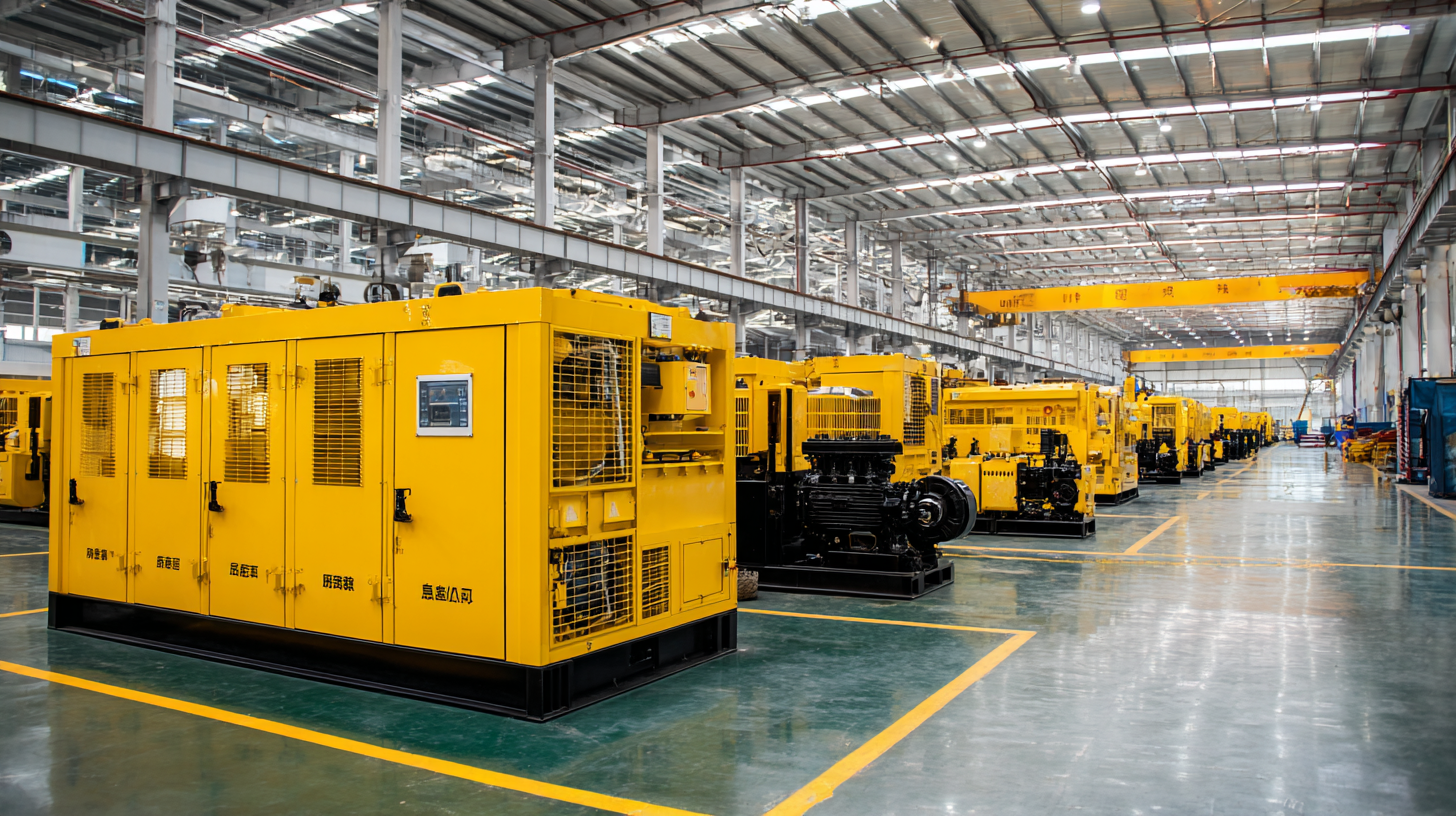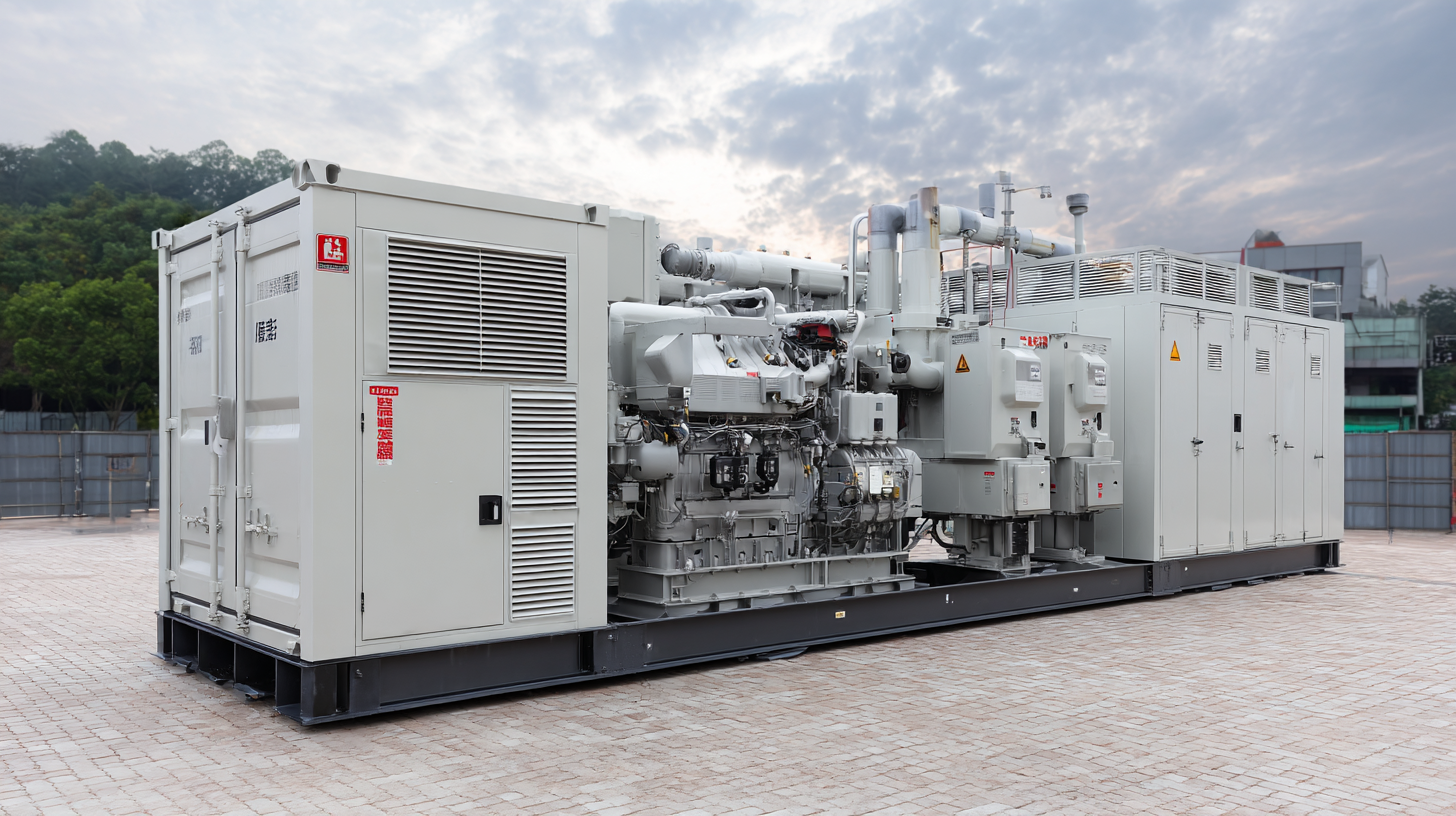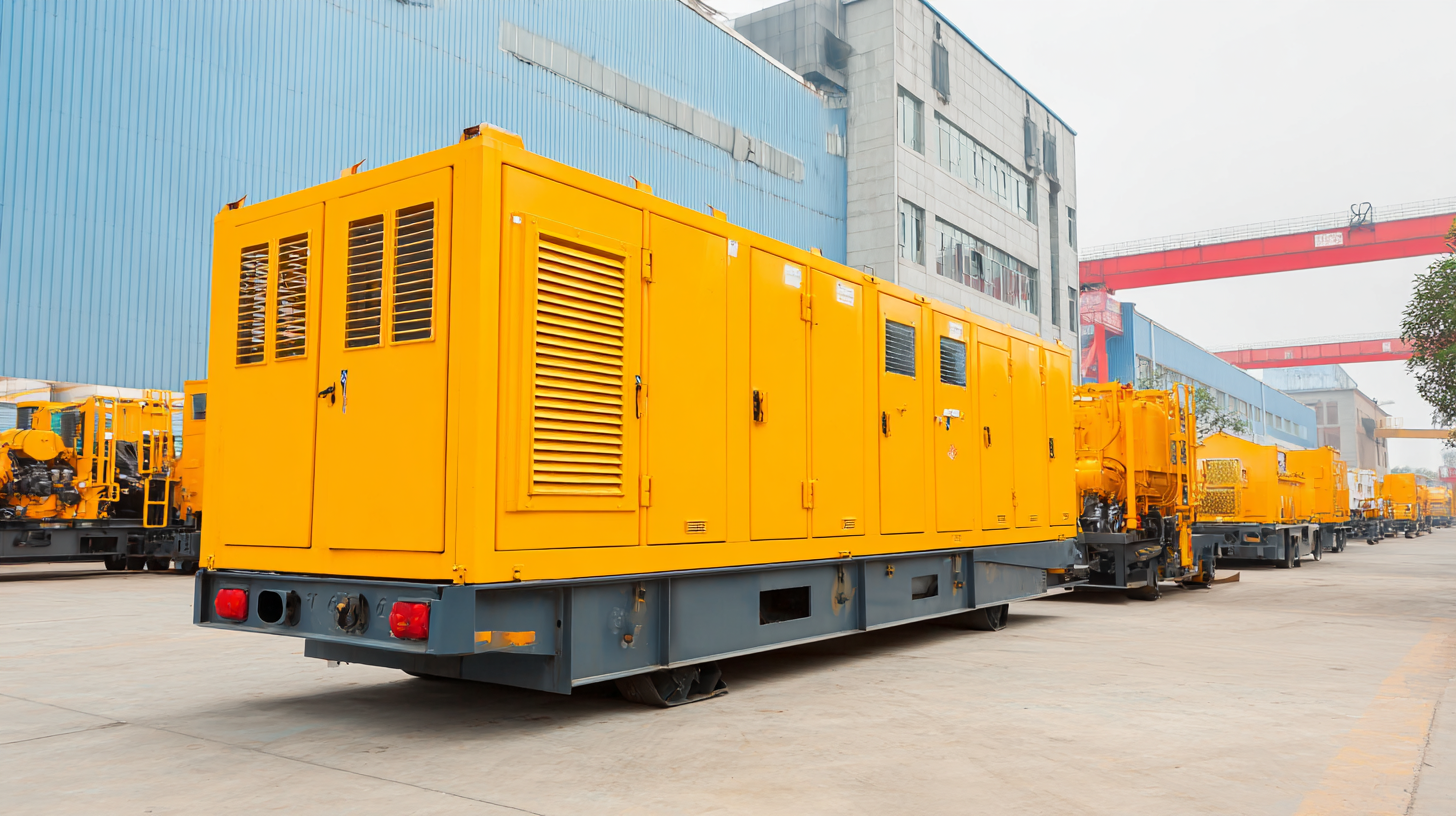
-
Home
-
Products
-
Service
-
About Us
-
Solution
-
Videos
-
News
-
Contact Us
Leave Your Message

The Chinese manufacturing sector continues to be a powerhouse of global industrial output, accounting for approximately 28% of the world's total manufacturing as of 2021, according to the World Bank. Amidst this robust growth, the demand for reliable energy solutions has become paramount, particularly in the form of Diesel Generator Supply. With the increasing frequency of power outages and the need for sustainable manufacturing practices, diesel generators are vital for maintaining uninterrupted operations.

Industry reports indicate that the global diesel generator market is projected to reach over $23 billion by 2027, with China being a major contributor to this growth. This blog will explore how harnessing effective diesel generator supply solutions can not only enhance productivity but also position Chinese manufacturers to meet the challenges of an evolving global market.
The diesel generator supply chain in China faces several significant challenges that can impede efficiency and reliability. First, fluctuating raw material costs can disrupt production schedules and affect pricing strategies. As global demand for diesel generators increases, the need for consistent supply of high-quality components becomes critical. Manufacturers must navigate market volatility, ensuring they have access to the necessary materials without incurring excessive costs that could hinder competitiveness.

Another challenge lies in logistics and transportation. China’s vast landscape and established infrastructure present both opportunities and barriers. While transportation networks are improving, delays and inefficiencies still arise due to regulatory hurdles, port congestion, and regional disparities. Effective supply chain management necessitates not only efficient coordination among suppliers but also innovative logistics solutions to minimize downtime and enhance delivery performance.
Moreover, specific quality control measures must be implemented at multiple stages of the supply chain. Ensuring that each component meets rigorous quality standards is essential, particularly when dealing with heavy-duty machinery like diesel generators. As manufacturers strive to uphold quality amidst these challenges, they must adopt robust monitoring systems and collaborate closely with suppliers to maintain a seamless workflow. Success in this sector hinges on an integrated approach to supply chain management that addresses these complexities head-on.
The manufacturing of diesel generators in China has witnessed significant transformations, primarily driven by advancements in technology and stringent quality control measures. Quality control plays a pivotal role in ensuring that the products meet international standards and cater to the growing demand for reliable backup and mobile power solutions. As highlighted in recent analyses, the industry is experiencing an uptick in demand amidst competitive market conditions, with an emphasis on developing intelligent, green, and high-end power generation systems.
In light of the evolving landscape, companies are increasingly recognizing the importance of implementing robust quality assurance practices. These measures not only safeguard the reputation of manufacturers but also enhance product reliability and customer satisfaction. For instance, the case of a quality assurance failure in a leading manufacturer serves as a critical reminder of the necessity for stringent oversight throughout the production process. As the market continues to expand towards more sophisticated diesel engine solutions, the commitment to quality will ultimately determine the sustainability and success of Chinese manufacturing in the global arena.
The advancement of technology plays a crucial role in enhancing diesel generators, especially within the rapidly evolving landscape of Chinese manufacturing. Modern diesel generators are now equipped with cutting-edge features that optimize fuel efficiency and overall performance. By integrating sophisticated energy storage systems, manufacturers have begun to provide solutions that address the growing demand for reliable power sources in various applications, from industrial use to critical infrastructure settings.

Furthermore, the integration of artificial intelligence in the management of diesel generators allows for predictive maintenance and real-time monitoring, significantly reducing downtime and operational costs. These innovations not only improve reliability but also contribute to the sustainability of energy systems. As industries increasingly focus on environmental impact, the application of advanced technologies in diesel generators aligns with global efforts towards greener energy solutions, affirming the industry's commitment to sustainable development. The role of technological advancements is therefore pivotal in shaping a future where diesel generators meet the challenges of modern energy demands while adhering to sustainability goals.
In recent years, the Chinese manufacturing sector has witnessed a significant shift towards eco-friendly diesel generators, driven by increasing awareness of environmental issues and government regulations promoting sustainability. These advanced generators are not only designed to comply with stringent emission standards but also incorporate innovative technologies that enhance efficiency. As manufacturers face growing pressure to minimize their carbon footprints, the demand for environmentally conscious power solutions is surging, making the eco-friendly diesel generator market a focal point of growth.
The rise of these generators is fueled by the need for reliable power sources in various industries, including construction, agriculture, and telecommunications. Modern diesel generators are being equipped with features like smart monitoring systems and alternative fuel options, making them more appealing to eco-conscious businesses. Furthermore, the industrial shift towards renewable energy sources complements the adoption of eco-friendly diesel generators, providing a hybrid approach that maximizes energy efficiency while reducing environmental impact. As the market evolves, these advancements promise to redefine power generation in China, aligning with global trends towards sustainable practices.
The Chinese diesel generator industry has gained significant attention in recent years, thanks to its essential role in powering various sectors. However, navigating the complex landscape of regulatory compliance poses substantial challenges for manufacturers and suppliers. The evolving nature of regulations requires a robust understanding of both national standards and international market expectations. Manufacturers must stay abreast of changing laws regarding emissions, safety, and product certification to remain competitive and compliant.
Moreover, the regulatory framework can vary significantly across different regions within China, creating additional hurdles for businesses operating on a national scale. Ensuring compliance often necessitates a dedicated team focused on legal and environmental regulations, as well as investments in technology that meet international standards. Failure to adhere to these regulations can not only result in fines but also damage a company’s reputation in the global market. Thus, overcoming these compliance challenges is crucial for harnessing the full potential of Chinese manufacturing in the diesel generator sector and solidifying its position as a leader in the industry.